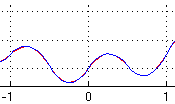Simpson and Lackey both have differing theories on what constitutes a just war.
The primary point that they disagree on is that of self defense. Lackey's theory requires
and actual attack to have taken place, while Simpson's theory regards the threat of harm
as sufficient cause, under certain circumstances to justify the use of force on the grounds
of self defense.
Lackey's position, at least to me, makes more sense. In order for an actual threat
to exist, and an actual belligerent action must be taken. Simpson's position has to do
with a perceived threat of harm. The problem with this is perceptions can be skewed by
biases and stereotypes. This taints any cause for war, whereas Lackey's theory, the
aspect of self defense can never be tainted. Self defense is legitimate in both criminal
and civil law, so it makes sense that it is legitimate on a global scale.
I
believe that Simpson leaves out the people's factors of emotions and feelings in his
theories, where one would think they would necessary when one has to perceive
something. While Lackey's notion of self defense is so cut and dry it is by far more
objective, and can be used on a scale far wider than Simpson's.
The ideas all behind Lackey's theory are also stronger than that of Simpson's.
Self defense against an attack prevents unwarranted aggression. By making self defense
a requirement for just war, all the countries that follow this theory will they never be
aggressors towards others. If countries can be eliminated as aggressors, we can decrease
the number of wars. Fewer wars mean less suffering and casualties. Less suffering and
casualties leads to the advancement of the human race, which is what should be every
nation's goal. So, justifying war by self defense will inevitably...


